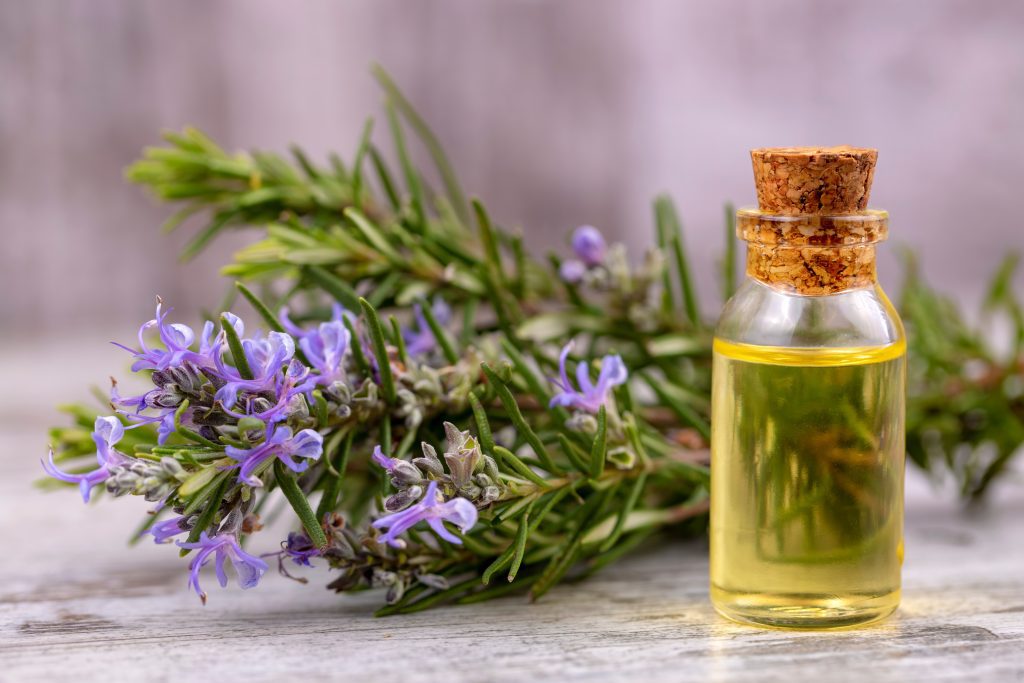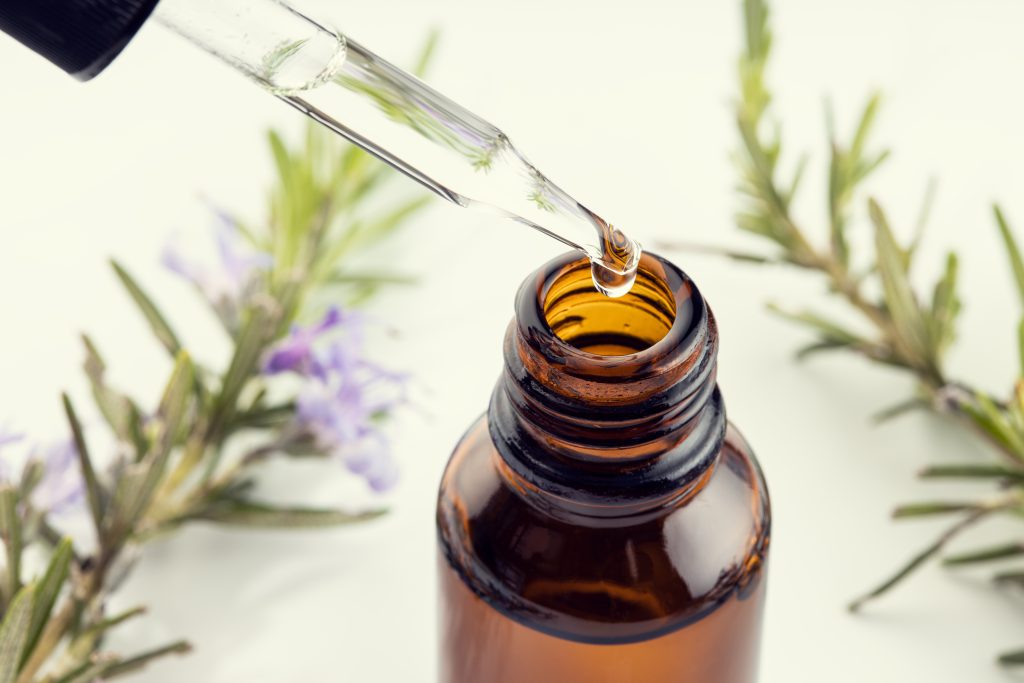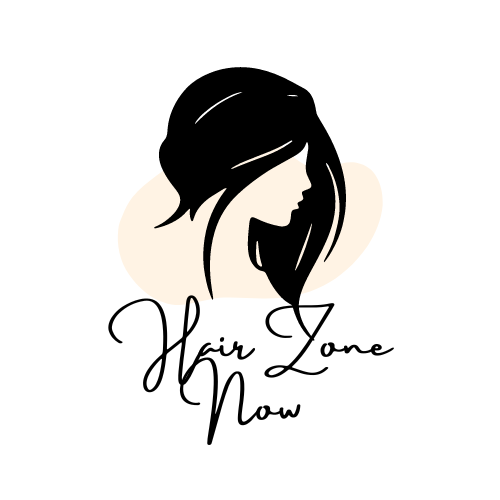The Benefits Of Rosemary Oil for Hair
In the vast realm of beauty ingredients, each one promises unique benefits. From the ever-popular green tea to argan and tea tree oils, every component aims to enhance different aspects of beauty. The latest sensation in the beauty world revolves around rosemary oil, a familiar herb often associated with culinary uses. While rosemary is commonly known for its flavorful addition to chicken dishes, its essential oil has been gaining attention, particularly on TikTok, for its purported benefits for hair health. In this exploration, we unravel the reasons behind the buzz surrounding rosemary oil for hair and evaluate whether it’s a trend worth embracing.

Rosemary oil is extracted through steam distillation of the flowers, leaves, and twigs of the Rosmarinus officinalis plant. Unlike collecting grease from rosemary-marinated chicken, the essential oil encapsulates the herb’s most potent components in a concentrated form.
The primary claim associated with rosemary oil is its ability to enhance hair growth. Contrary to directly stimulating hair density, studies suggest that rosemary oil safeguards hair from triggers leading to hair fall or thinning. Its benefits lie in several key factors:
Increased Sebum Levels: Like other hair oils such as coconut or castor oil, rosemary oil boosts sebum levels, contributing to smoother and stronger hair strands, and reducing the risk of breakage.
Anti-Inflammatory Properties: Rosemary oil’s anti-inflammatory properties soothe scalp irritation, potentially preventing damage to the skin and hair follicles. While an itchy scalp may not directly cause hair loss, the consequential scratching and pulling can result in hair shedding.
Antioxidant-Rich: A 2018 study highlights rosemary’s antioxidant and antimicrobial properties, mainly attributed to its carnosic acid content. Antioxidants combat free radicals, preventing the breakdown of amino acids, peptides, and proteins responsible for hair strength.
Improved Circulation: As a vasodilator, rosemary oil enhances blood circulation, ensuring the scalp receives essential nutrients for optimal hair growth.

Despite the growing popularity of rosemary oil for hair, experts like Dr. Riza Milante-Taruc caution against overreliance, emphasizing the limited evidence from studies. The 2015 research often referenced in the trend involved only 50 participants, making the evidence relatively small. Dermatologist Dr. Aaminah F. Azhar suggests that essential oils, including a blend of thyme, rosemary, lavender, and cedarwood, proved more effective for treating alopecia than a placebo in a separate study.
Dr. Taruc underscores the importance of distinguishing between rosemary oil and the process of boiling herbs in water. Directly applying essential oil to the hair may lead to adverse reactions. She recommends exploring more established hair-boosting aids, such as oral finasteride and oral and topical minoxidil. Combining these treatments with a healthy diet, stress reduction, and avoiding harmful hair practices provides a comprehensive approach to hair health.
